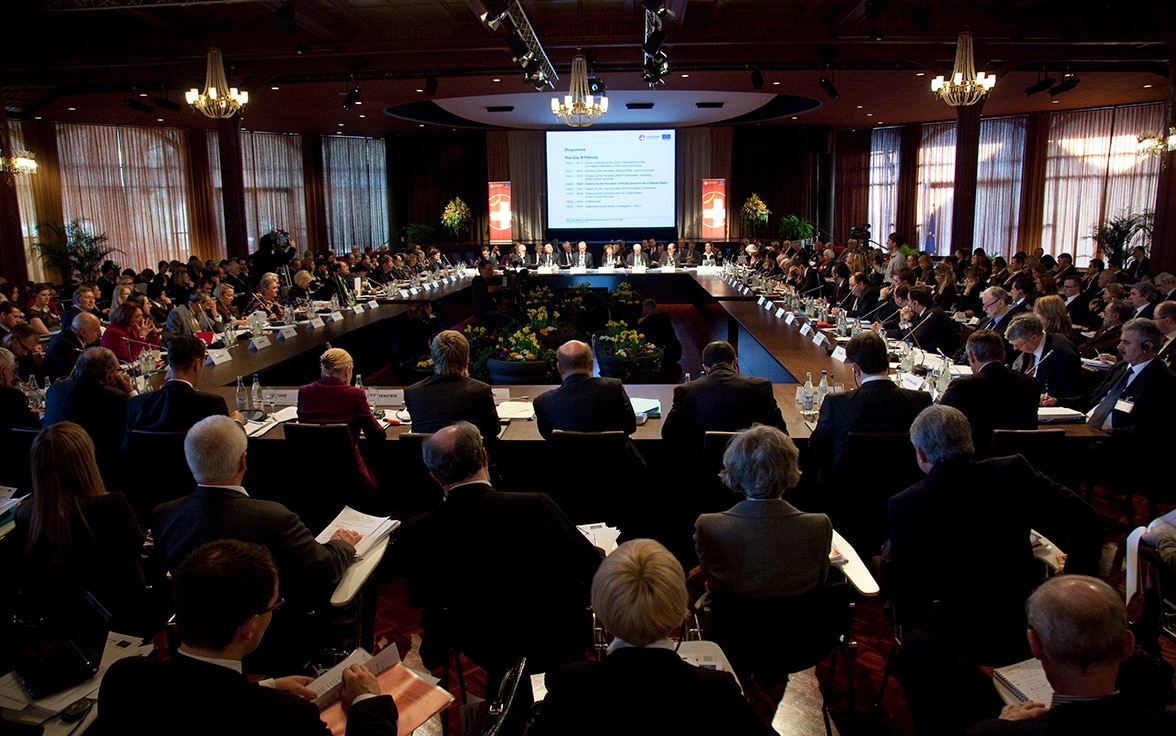"Intergovernmental cooperation is essential in a global crisis"
Ambassador Christian Meuwly, permanent representative of Switzerland to the Council of Europe in Strasbourg, talks about the European Convention on Human Rights (ECHR), which is turning 70. He discusses its influence, importance and future, and the crucial role of intergovernmental cooperation, especially in times of crisis.
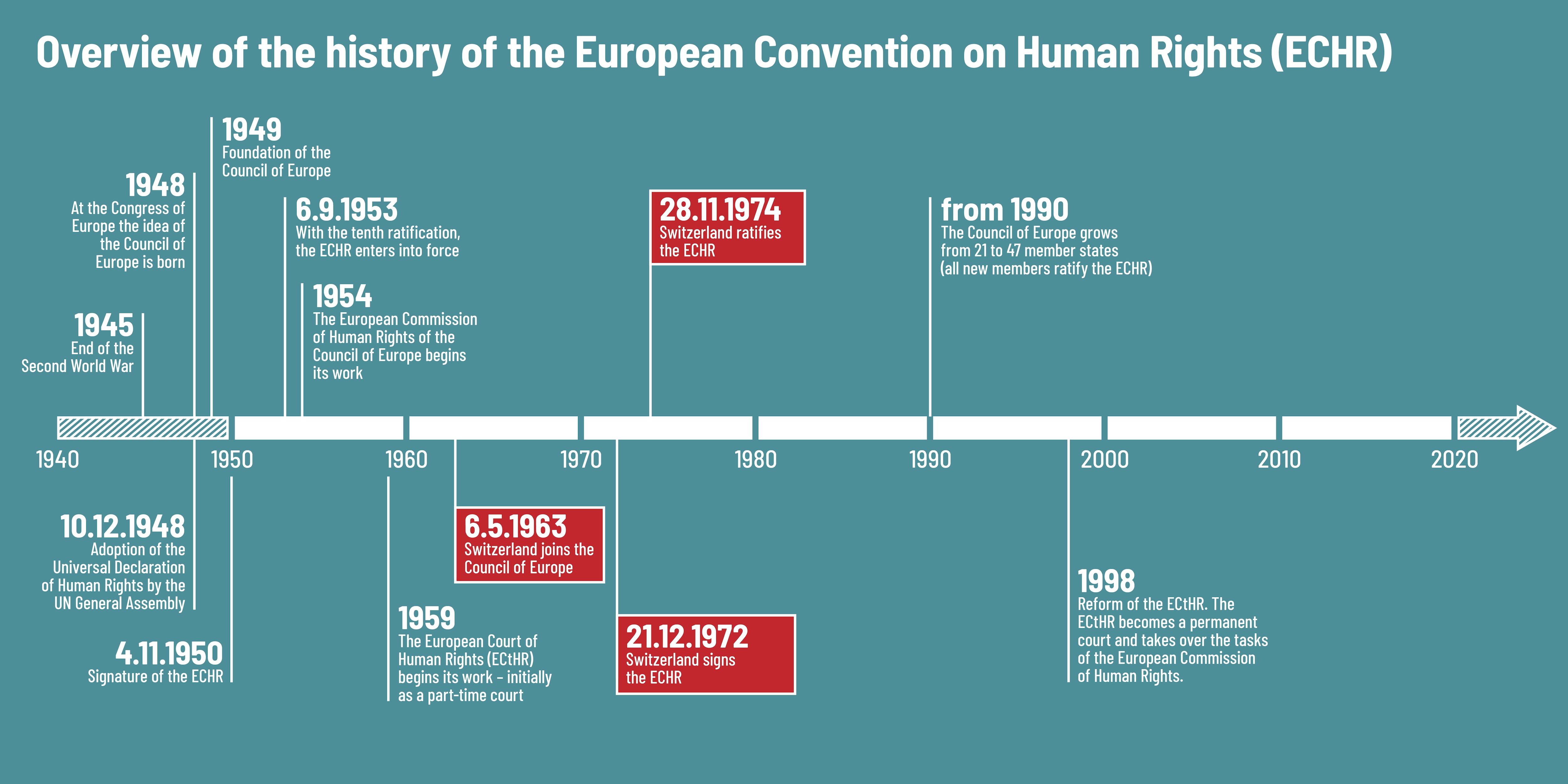
(Source: Swiss Centre of Expertise in Human Rights/Lucerne University of Teacher Education. Die Europäische Menschenrechtskonvention (EMRK) …, Lucerne 2014, 12-13.) © FDFA
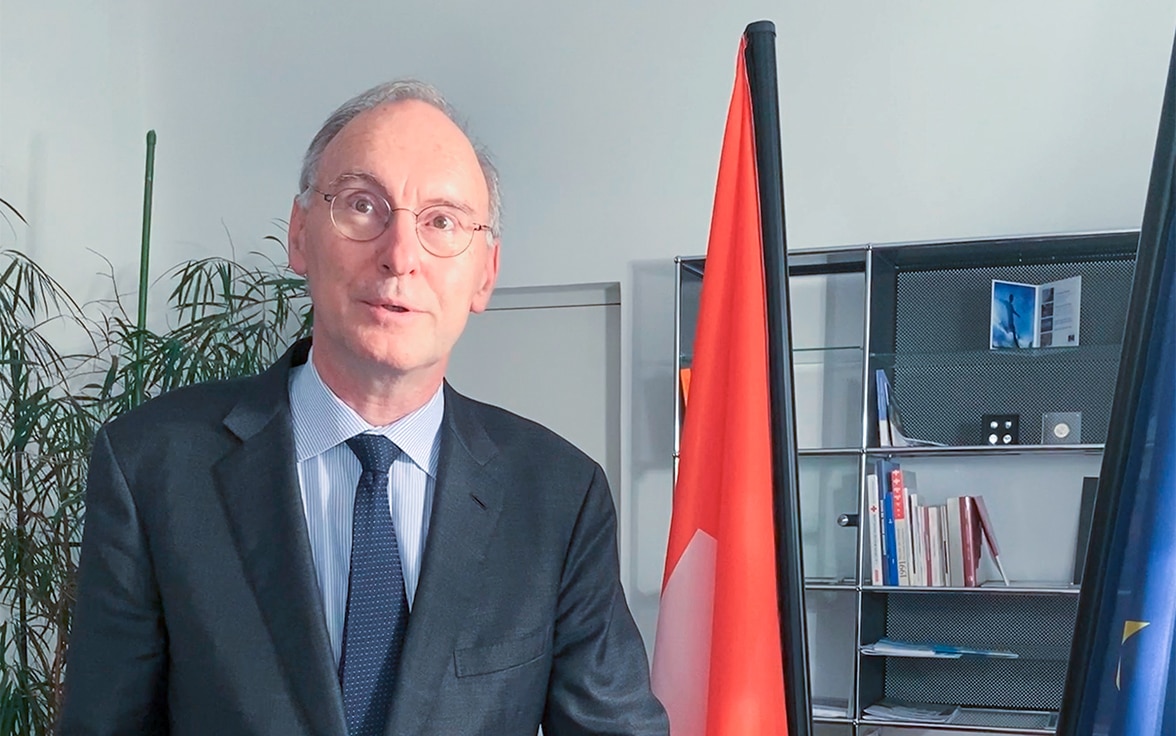
Christian Meuwly, the European Convention on Human Rights (ECHR) will be 70 this year. How have the issues it addresses changed over time?
The circumstances in which people live are changing all the time. New technologies such as artificial intelligence or reproductive medicine now raise new questions about the protection of human rights. Nowadays, any regulation or court decision has to be scrutinised to see how it affects fundamental rights. This is a major challenge for national authorities and much of the Council of Europe's work is devoted to addressing this. Moreover, since the end of the Cold War, it has changed from a Western European to a pan-European organisation. So the number and diversity of human rights issues has increased considerably
The world is currently in the grip of the COVID-19 crisis. What is the role of the Council of Europe in dealing with the pandemic? Is it even able to fulfil its mandate in these circumstances?
Intergovernmental cooperation to share knowledge and practices is essential in a global crisis like the COVID-19 pandemic. The international organisations provide platforms for these discussions to take place. In the Council of Europe, the issue of governance is central. How can we find effective solutions to problems of coexistence while respecting the rights and freedoms of individuals to the greatest extent possible, and observing the rule of law and democratic principles? This question is at the heart of public debate on the measures to contain the pandemic.
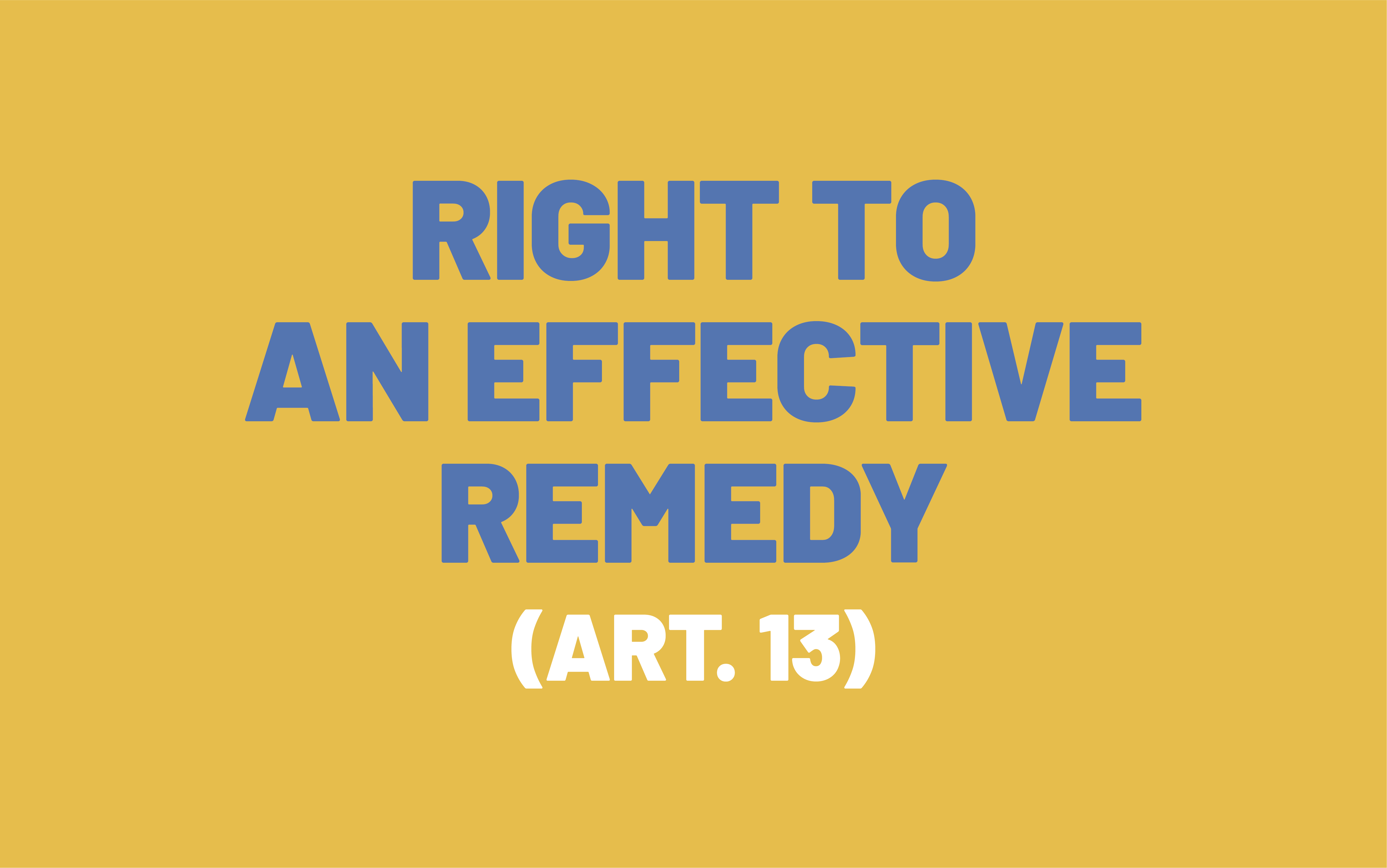
Let's go back in time. The ECHR was signed on 4 November 1950. Ten Western European countries had founded the Council of Europe the previous year. Why was there a need to create a binding instrument for the protection of human rights in Europe at that time?
The events before and during the Second World War had made it clear that the solemn invocation of Western values and virtues was not sufficient in itself to protect human rights in Europe effectively. After the United Nations adopted the Universal Declaration of Human Rights in 1948, the Europeans managed to set up a mechanism that enables individuals to claim their rights and appeal to a supranational institution, the European Court of Human Rights. The Court monitors practical compliance with these fundamental rights.
What was the situation like in Europe post-war?
Europe was divided: the central and eastern states were under Soviet control. Western Europe faced huge challenges. It needed to make a start on post-war reconstruction. This was done under US leadership with the Marshall Plan, and through the establishment of what is now the Organisation for Economic Co-operation and Development (OECD). Militarily, it needed to face up to the Soviet Union and its allies, which was done through the creation of NATO under the leadership of the US. And leading Western European figures were calling for an independent united Europe based on liberal and democratic values. Theirs was the vision behind the founding of the Council of Europe.
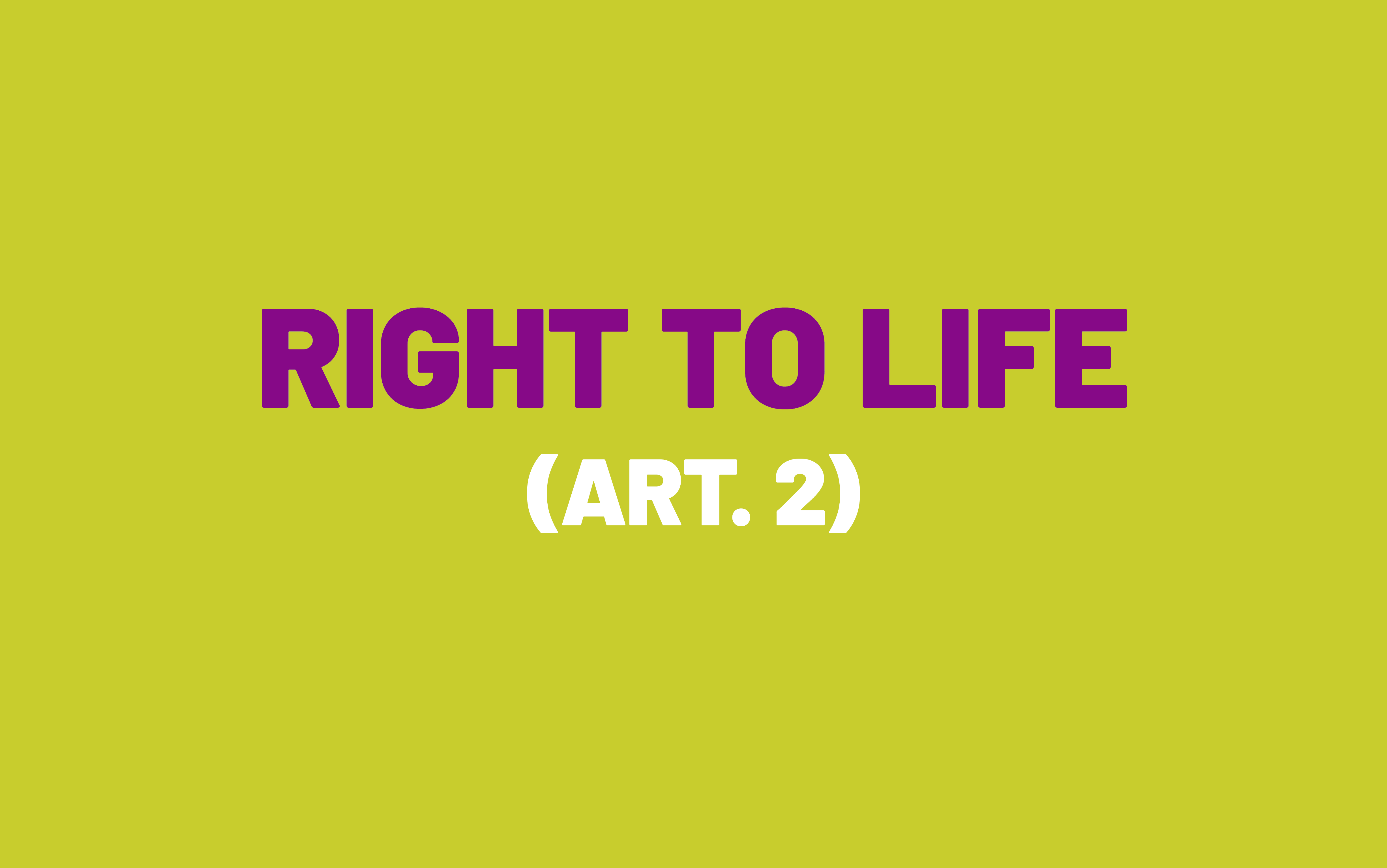
The establishment of the ECHR created international guarantees and safeguards to bolster the protection of human rights, which had been a purely domestic matter. It entered into force with the 10th ratification in 1953. Would you call this a success story?
Yes, you can definitely say that. The European Convention on Human Rights aims to guarantee the rights contained in the Universal Declaration of Human Rights. Ratification of the ECHR and the abolition of the death penalty are prerequisites for membership of the Council of Europe. The possibility to have the human rights compliance of decisions taken by a state's highest courts reviewed by an international court of justice was new and unique in the world.
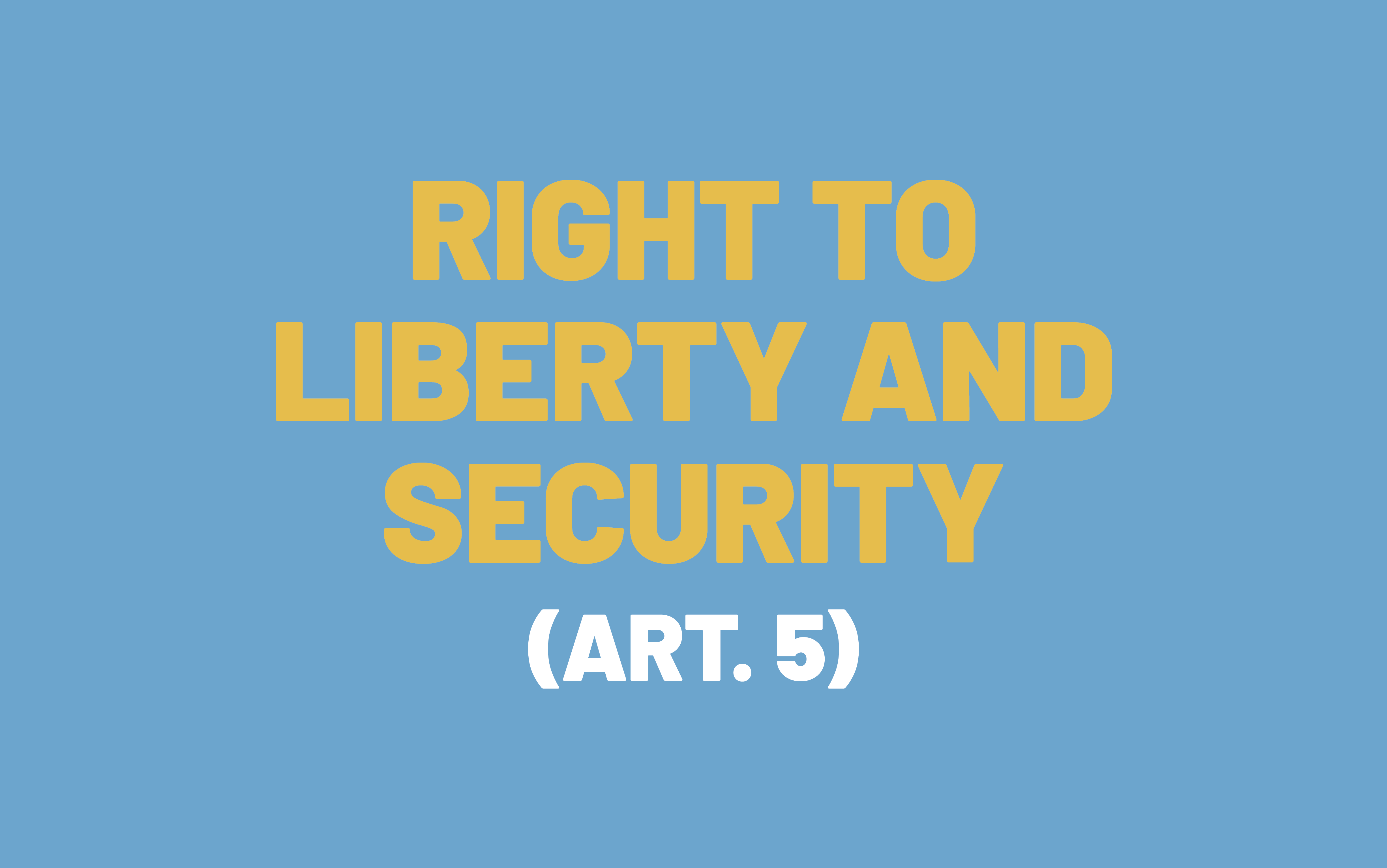
© FDFA
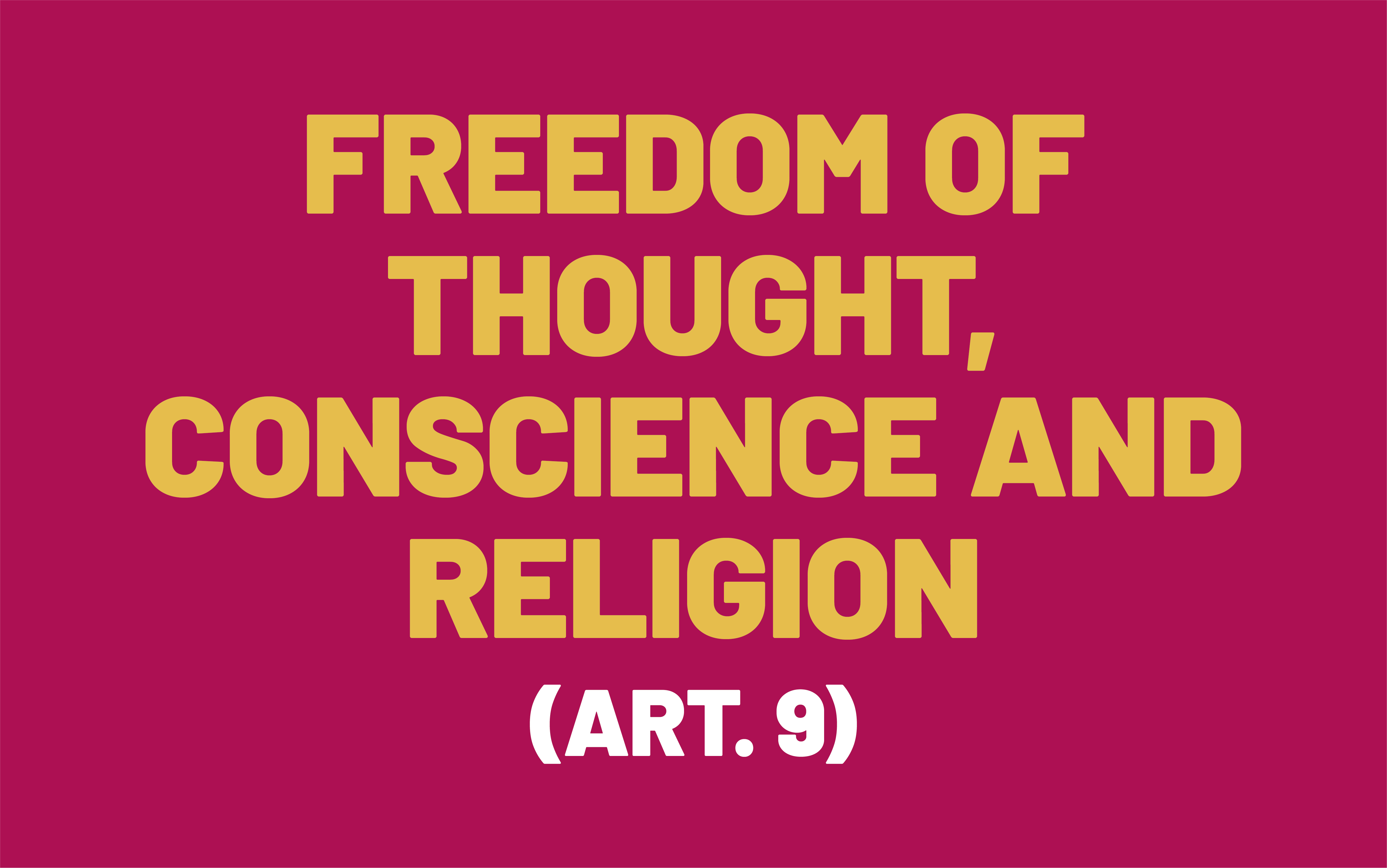
When did Switzerland sign the ECHR?
On 21 December 1972, almost ten years after our country joined the Council of Europe on 6 May 1963. As late as the 1960s, large parts of the Swiss legal system were still incompatible with the ECHR. There were the issues of women's suffrage – women famously didn't obtain the right to vote here until 1971 – and the amendments directed against the Catholic Church in the Federal Constitution. Switzerland ratified the ECHR on 28 November 1974.
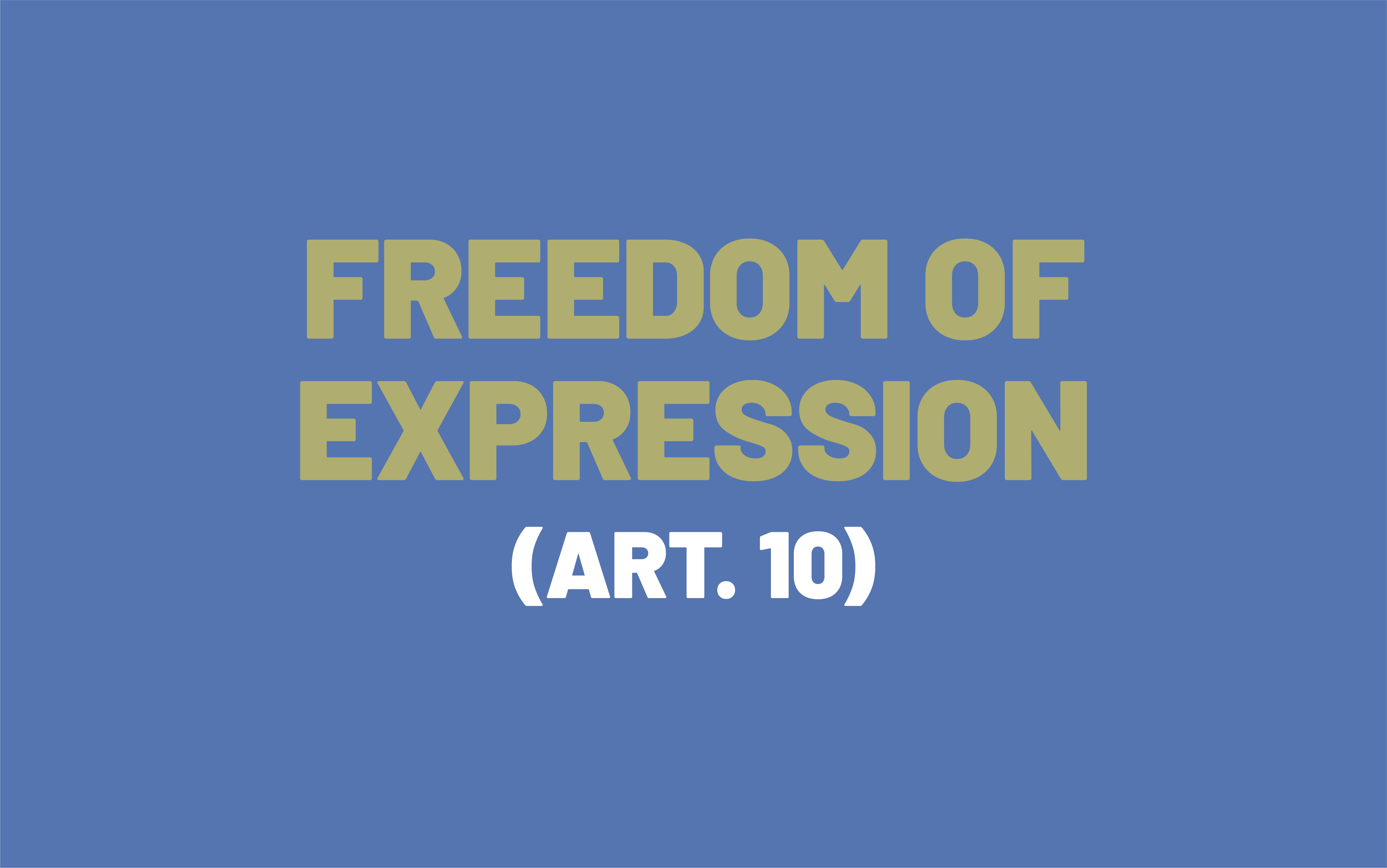
How would you summarise the convention's impact?
The ECHR has had a major influence on court decisions, legislation and government practice in Europe. In Switzerland too, courts, parliaments, governments and administrations are careful to consider the body of case law of the European Court of Human Rights. However, the ECHR also has an effect in member states where human rights violations are more frequent. Victims of political persecution and human rights defenders find support in Strasbourg, and not only as a last resort. The problems in their countries are raised in public and the states' representatives have to justify themselves in both the Parliamentary Assembly and the Council of Ministers. Also important are the many committees of experts, in which member states exchange views and adopt recommendations on issues such as prisons or combating hate speech and racism on social networks.
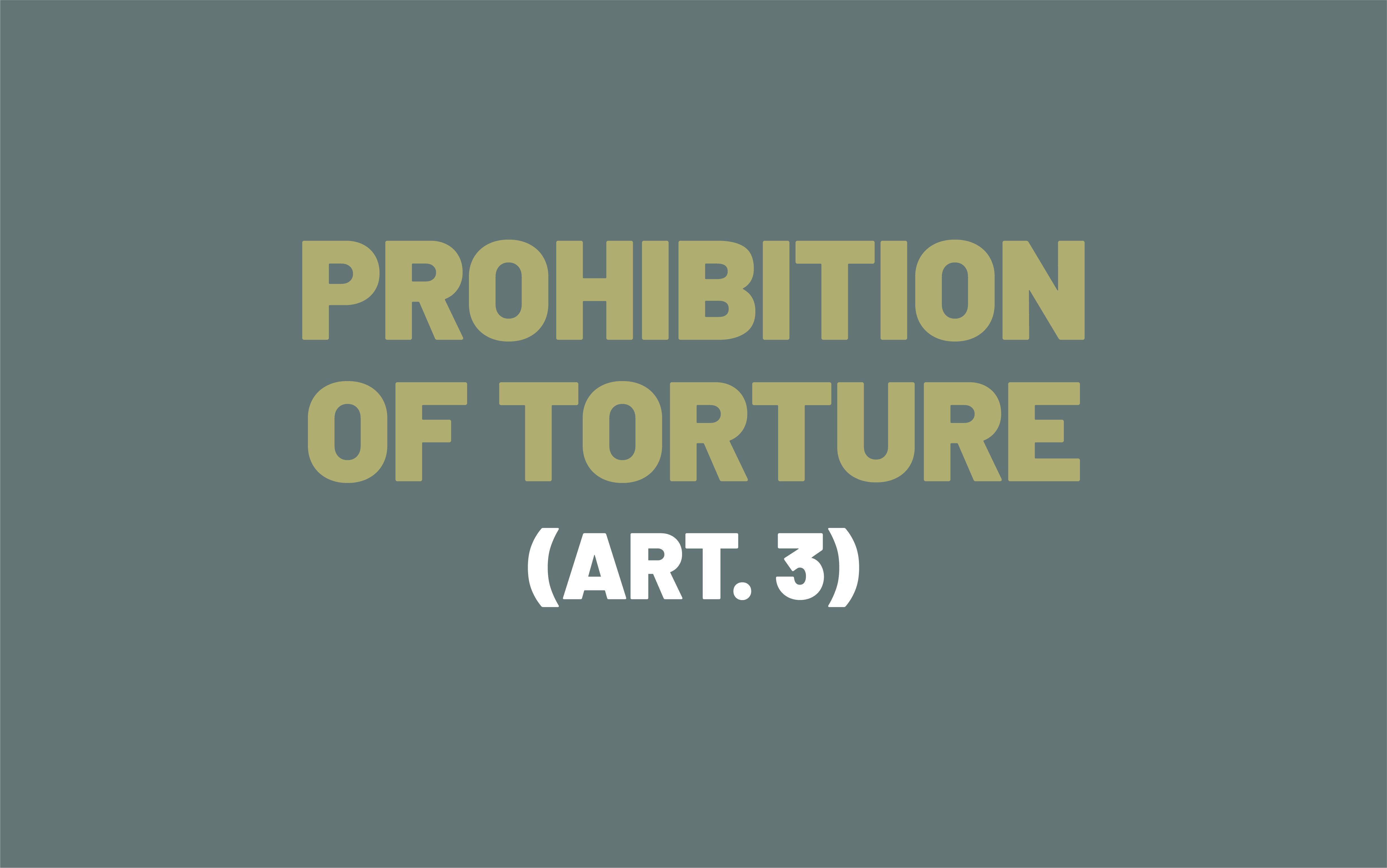
© FDFA

